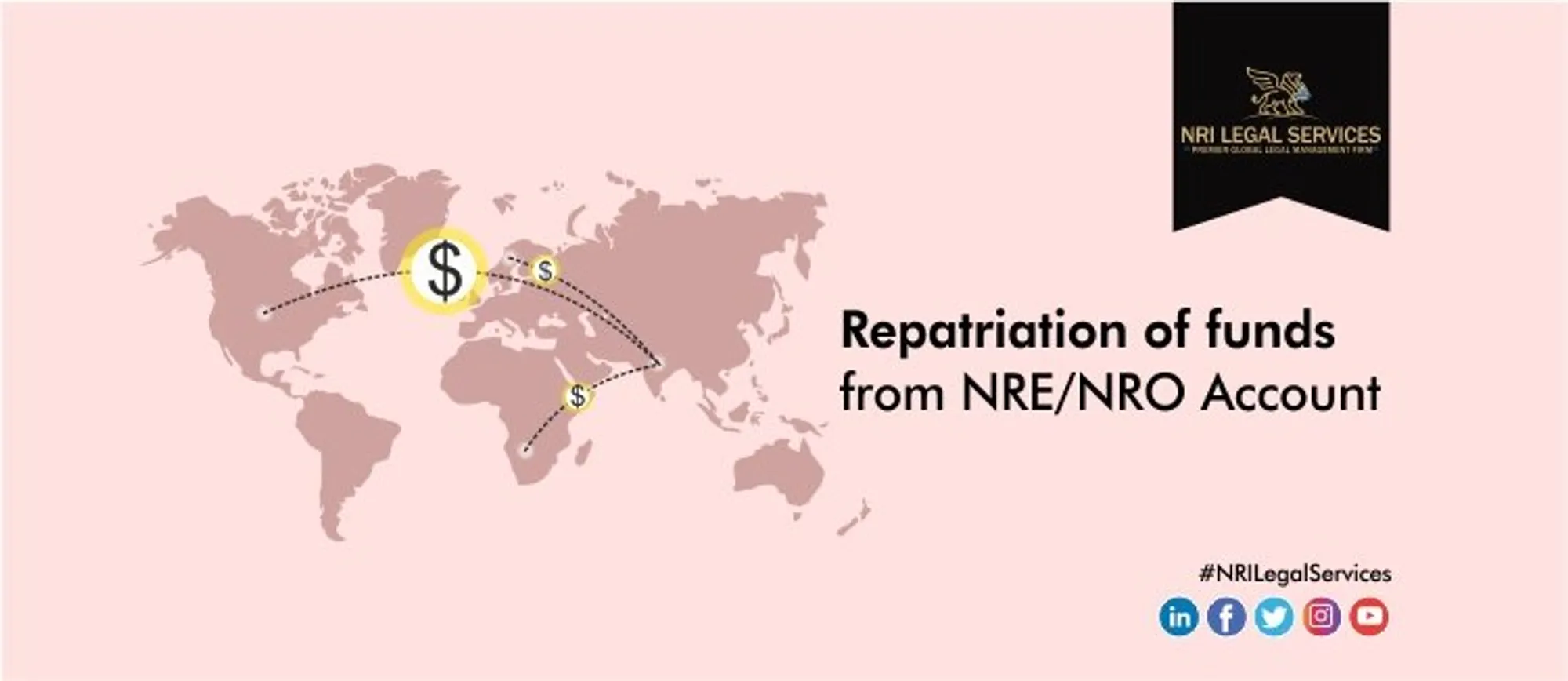NRIs open NRE/NRO account to manage their funds and for the purpose of repatriation of funds they use these accounts to deposit foreign income or income accruing in India. Repatriation from these accounts means remitting the funds to the country of residence of NRI.
The repatriation of funds can be repatriated to the foreign account of customer only and not to any other person’s account.
Read: Opening an NRO Account – steps, details, requirements
Table of Contents
Repatriation of funds from different accounts
Repatriation from NRE account:
This is just like outward remittance. NRE account is opened by NRIs in India to deposit their foreign earnings in Indian denomination. It can be in the form of saving, current, fixed deposit or recurring account.
The withdrawal from NRE account is in the form of rupees. This account is subject to currency fluctuations. There is no tax on the principal amount and interest earned. Repatriation is allowed without any limit.
Repatriation from NRO account:
NRO account is opened to manage income earned in India. Interest earned is subject to the tax deduction. Money is withdrawn in rupees only but can be deposited in rupee or foreign currency. Interest income can be repatriated without any restriction, but the principal amount can be transferred up to USD 1 million in a financial year. Repatriation of funds is subject to tax payment.
Read: Convert Saving Account to NRO & NRE account
Documents required for repatriation of funds:
- Application Form requesting for repatriation – It contains details of payee bank account and source of funds.
- A2 form – FEMA declaration
- Form 15 CA and 15 CB (required for NRO a/c)- These forms certify that the customer has paid the requisite taxes.
The forms can be obtained at the bank branch or downloaded online, signed and then sent to the bank branch in India, by hand or via courier in case the person is abroad.
One can avail repatriation service:
- By visiting the branch where NRI has the a/c
- Online – If the bank provides so.
For online transaction, one has to keep in mind the time taken to complete the transaction and the fees charged by the bank.
Read: NRO, NRE & FCNR – All you need to know for staying updated and protected
After the documentation is over, the bank offers an exchange rate for conversion of foreign currency to Indian rupees. The forex rate is quoted as per RBI guidelines. It is the TT selling rate of the particular day when the amount is withdrawn.
Banks have to ensure that repatriation of funds is as per the FEMA guidelines. The destination foreign country must not be blacklisted by international financial organizations like FATF, established to check money laundering.
Remittance can be in US dollars or currency of destination country. The customer has to provide a code of the beneficiary bank, like:
- SORT code for GBP
- IBAN no. for EUR
- SWIFT for USD
- BSB No. for AUD
- Transit no. for CAD
Applicable charges are deducted. Sufficient balance has to be maintained in the account while requesting for repatriating the amount.
The sending bank generally requires a declaration to be signed by the customer that it is not responsible for any fees charged by the beneficiary bank. It is advised to take help of a financial advisor for choosing the appropriate repatriation service.
NRI Legal Services is now on Telegram. Join NRI Legal Services channel in your Telegram and stay updated.

